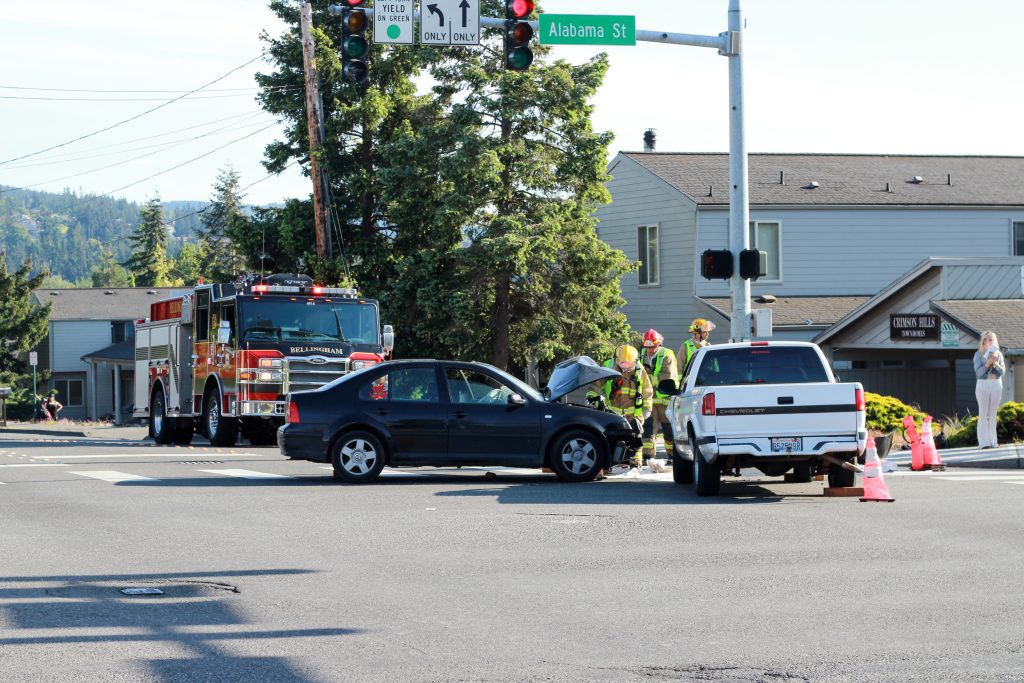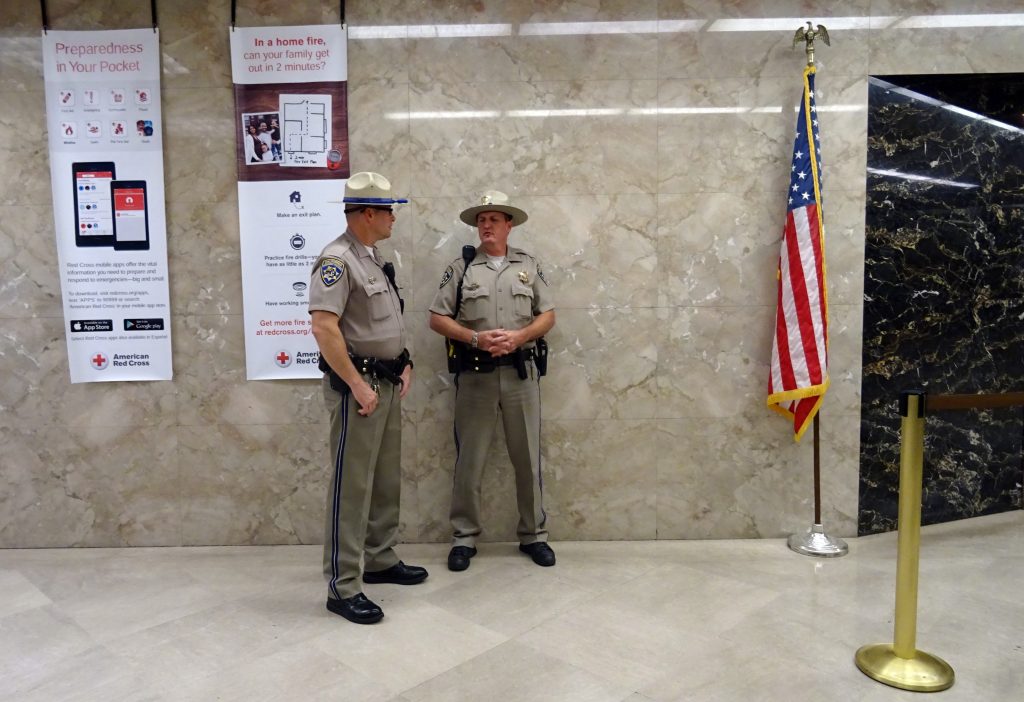 Prescription refers to the amount of time you have to file a lawsuit. If you do not comply with this procedural requirement, your case will be dismissed. In order to determine the date by which you must file your lawsuit, you need to know both the prescription period and when the period started to run. This case analyzes when the prescription period starts to run for false imprisonment and false arrest claims.
Prescription refers to the amount of time you have to file a lawsuit. If you do not comply with this procedural requirement, your case will be dismissed. In order to determine the date by which you must file your lawsuit, you need to know both the prescription period and when the period started to run. This case analyzes when the prescription period starts to run for false imprisonment and false arrest claims.
The Eunice Police Department arrested Paul Powell, Marlon Eaglin, and two others. They were charged with second degree murder. A few months after his release from prison, Eaglin filed a lawsuit against the police department, the city of Eunice, and the chief of police (the “defendants”) for false arrest and imprisonment. Over a year after their arrest, but less than year after they were released from prison, Eaglin amended his lawsuit to add Powell as a plaintiff.
The defendants filed an exception of prescription, arguing Powell’s claims were prescribed because he filed them over a year after the date of his arrest. Powell argued he had not exceeded the one-year prescription period because his claims related back to Eaglin’s claims, which had been filed within the required time period. Powell also claimed his false imprisonment claim was not prescribed because he had filed it within a year of being released from prison.
 Louisiana Personal Injury Lawyer Blog
Louisiana Personal Injury Lawyer Blog


 While many people enjoy oysters, few people are aware how oyster leases work. This case involves a couple who held oyster leases that were harmed when a company decided to renter a nearby oil well. Can that company be held liable for the damages to the holders of the adjacent oyster leases?
While many people enjoy oysters, few people are aware how oyster leases work. This case involves a couple who held oyster leases that were harmed when a company decided to renter a nearby oil well. Can that company be held liable for the damages to the holders of the adjacent oyster leases?  Honesty is the best policy. This is especially true in the workers’ compensation space, because if you are found to have been fraudulent, you forfeit your right to workers’ compensation benefits.
Honesty is the best policy. This is especially true in the workers’ compensation space, because if you are found to have been fraudulent, you forfeit your right to workers’ compensation benefits.  “Causation is an issue of fact.” “It is the test for determining the causal relationship between an accident and an ensuing injury.”
“Causation is an issue of fact.” “It is the test for determining the causal relationship between an accident and an ensuing injury.”  Car accidents can often give rise to lawsuits with complicated issues of causation and damages. Often, one or both sides will have expert witnesses to help explain complicated issues to the jury. What happens if one side argues the other side’s expert witness should not be allowed to testify as an expert witness?
Car accidents can often give rise to lawsuits with complicated issues of causation and damages. Often, one or both sides will have expert witnesses to help explain complicated issues to the jury. What happens if one side argues the other side’s expert witness should not be allowed to testify as an expert witness? If you retain a lawyer, you expect they will fairly represent you. What happens if after you hired a lawyer, you learn that lawyer had previously represented one of the parties you are suing, multiple times? Just like in other lawsuits, it is essential that you file any lawsuit within the required time period for bringing a claim. If you wait too long, then a court may be unable to hear your claim.
If you retain a lawyer, you expect they will fairly represent you. What happens if after you hired a lawyer, you learn that lawyer had previously represented one of the parties you are suing, multiple times? Just like in other lawsuits, it is essential that you file any lawsuit within the required time period for bringing a claim. If you wait too long, then a court may be unable to hear your claim. If you purchase an under or uninsured insurance policy, you might expect it to cover you if you are involved in a car accident. However, such insurance policies only apply in limited circumstances. By understanding your under or uninsured insurance policy and what evidence is required to establish your damages, you can avoid surprises down the road.
If you purchase an under or uninsured insurance policy, you might expect it to cover you if you are involved in a car accident. However, such insurance policies only apply in limited circumstances. By understanding your under or uninsured insurance policy and what evidence is required to establish your damages, you can avoid surprises down the road. Although the Constitution provides for the right to an attorney in criminal cases, this right does not apply to civil cases. What happens if you bring a claim for excessive force but your attorney withdraws? Are you entitled to have counsel appointed to represent you?
Although the Constitution provides for the right to an attorney in criminal cases, this right does not apply to civil cases. What happens if you bring a claim for excessive force but your attorney withdraws? Are you entitled to have counsel appointed to represent you?  Undergoing a surgery is always a nerve-wracking experience. You want to be able to trust that your surgeon conducted and reviewed the appropriate pre-operative tests. Can a surgeon be held liable if he or she fails to review the results of the pre-operative tests before performing the surgery?
Undergoing a surgery is always a nerve-wracking experience. You want to be able to trust that your surgeon conducted and reviewed the appropriate pre-operative tests. Can a surgeon be held liable if he or she fails to review the results of the pre-operative tests before performing the surgery?  In the bustling corridors of the U.S. Postal Service in Istrouma, Louisiana, a tale of workplace strife and legal intricacies unfolded. Catherine J. Valdry, a dedicated mail carrier, found herself entangled in a web of allegations against her supervisor, Clifton Maryland, a Customer Service Manager. What began as a refusal to join Maryland on a fishing trip soon spiraled into an alleged hostile work environment, as Valdry claimed she faced emotional distress and aggressive conduct. When she summoned the courage to report Maryland’s behavior, the situation took a turn for the worse, with ominous warnings and intensified micromanagement. Valdry’s pursuit of justice led her to the courtroom, where she aimed to prove her case, facing the challenging task of establishing a retaliatory hostile work environment. This article delves into the legal intricacies of her journey, from the district court’s initial ruling to the appellate court’s ultimate decision, which ultimately declared the case moot.
In the bustling corridors of the U.S. Postal Service in Istrouma, Louisiana, a tale of workplace strife and legal intricacies unfolded. Catherine J. Valdry, a dedicated mail carrier, found herself entangled in a web of allegations against her supervisor, Clifton Maryland, a Customer Service Manager. What began as a refusal to join Maryland on a fishing trip soon spiraled into an alleged hostile work environment, as Valdry claimed she faced emotional distress and aggressive conduct. When she summoned the courage to report Maryland’s behavior, the situation took a turn for the worse, with ominous warnings and intensified micromanagement. Valdry’s pursuit of justice led her to the courtroom, where she aimed to prove her case, facing the challenging task of establishing a retaliatory hostile work environment. This article delves into the legal intricacies of her journey, from the district court’s initial ruling to the appellate court’s ultimate decision, which ultimately declared the case moot.